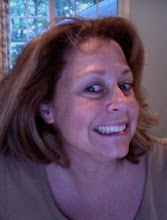It Ends with Us by Colleen Hoover is a book about domestic abuse. In my opinion, the author’s writing style doesn’t meld well with the intensity of the dark subject matter.
“All humans make mistakes. What determines a person’s character aren’t the mistakes we make. It’s how we take those mistakes and turn them into lessons rather than excuses.”
“I wanted to be more prepared for this conversation because I absolutely hate confrontation.”
“Sometimes parents have to work through their differences and bring a level of maturity into a situation in order to do what’s best for their child.”
“There is no such thing as bad people. We’re all just people who sometimes do bad things.”
“And as hard as this choice is, we break the pattern before the pattern breaks us.”
“Cycles exist because they are excruciating to break. It takes an astronomical amount of pain and courage to disrupt a familiar pattern. Sometimes it seems easier to just keep running in the same familiar circles, rather than facing the fear of jumping and possibly not landing on your feet.”
Finally, the coup de grace, “It stops here. With me and you. It ends with us.”
EDIT — the results are in: It Ends With Us is so much better in film form. It rarely happens that I like the movie more than the book, but there you have it; just like The Help, I felt the film version elevated everything about the story to a deeper level, whereas the book seemed to downplay the significance of the topic and simplified the characters.
Excellent screenwriting turned banal writing on its head. Sparkly cinematography lit the setting on fire. A provocative soundtrack of contemporary, independent music amplified the plot’s underlying tension. But most of all, the actors brought the tired characters to life. Blake Lively is so good, she turned an uninspiring main character into a tough and quirky but likeable heroine.
Here’s one example of the upgraded script. When Lily and Ryle first meet up on the roof, one of his shocking “naked truths” is I want to have sex with you. After assuring him she’s not that kind of girl, Lily ponders his next question. “Exactly how far would you go?” Lily, when pressed for an answer, stammers, “I’m not sure. I’m an unreliable narrator.” They then proceed to find out, until interrupted by his cellphone.
Her character in the book comes across as prissy and syrupy. In the movie, Lively portrays Lily with street smarts and an edge that makes her more engaging and relatable.
Sigh, but then the actors started behaving badly and suing each other. I should stick with nonfiction.


No comments:
Post a Comment